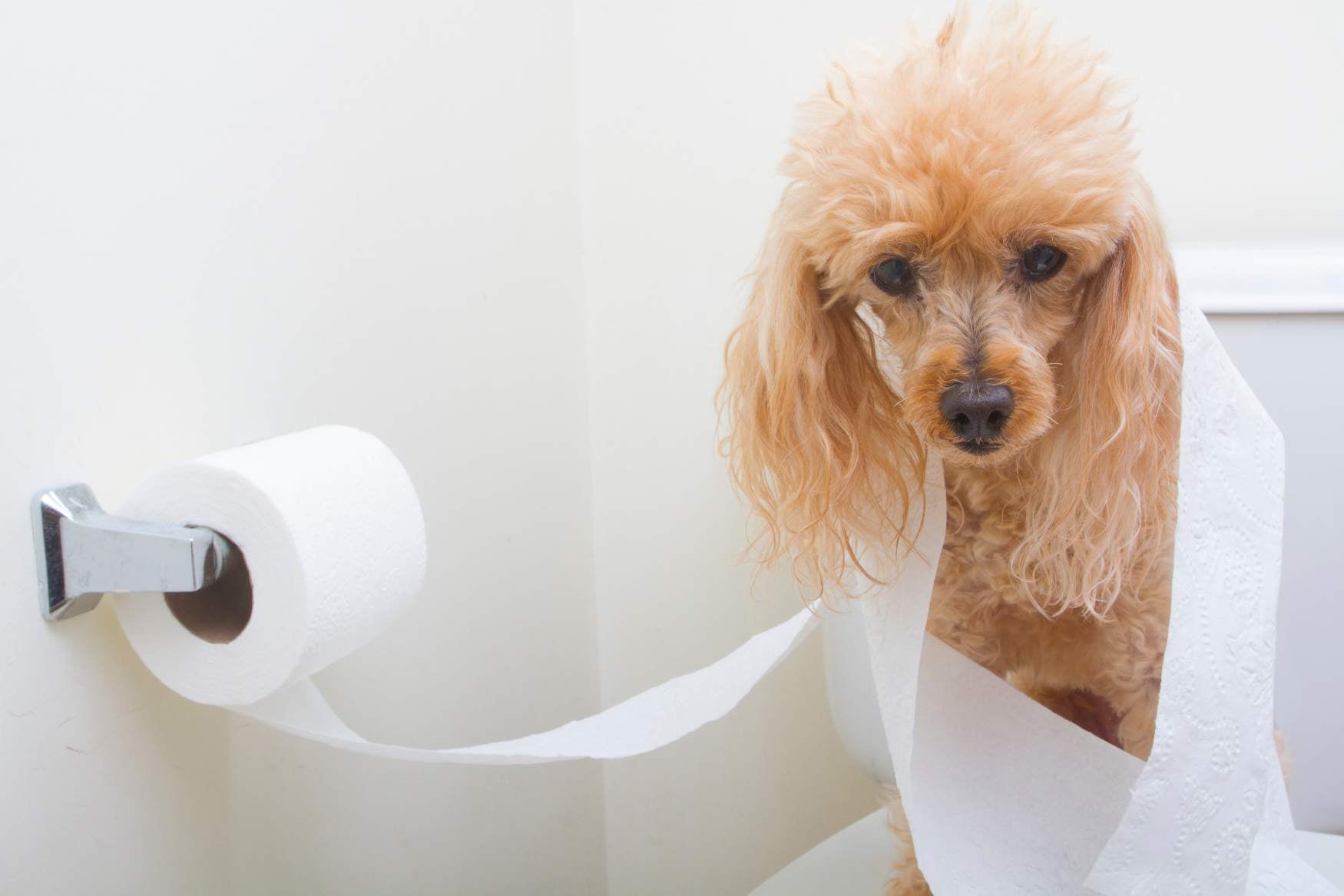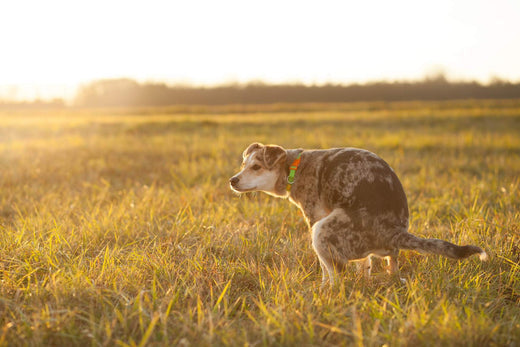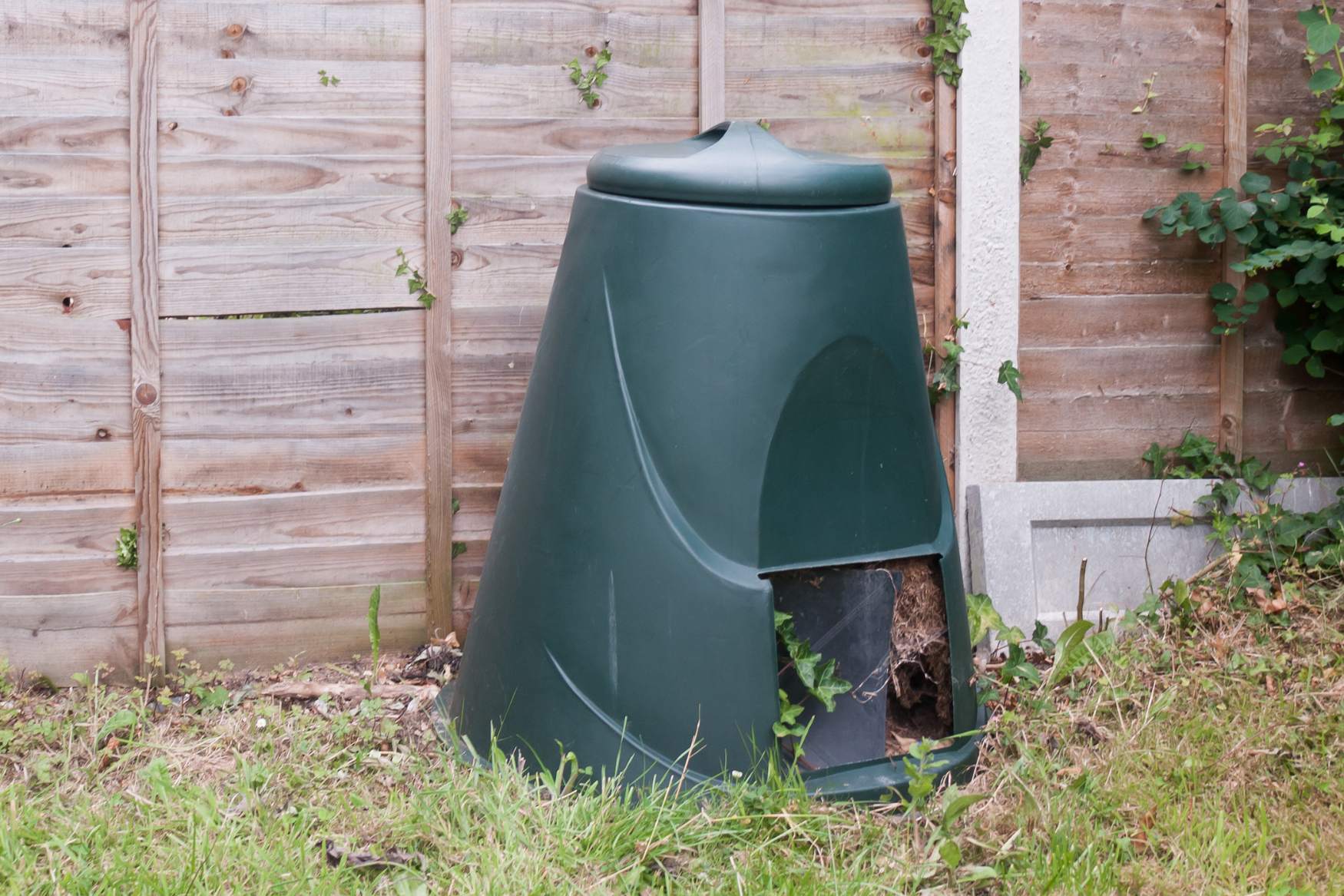Let's say you don't have the facilities, space or the time to compost dog poo (which is completely fair enough)!
But you still want to choose an eco-friendly poo bag that doesn't harm our planet.
Which one do you choose?
Many people still choose compostable poo bags.
This is likely due to the belief that they will naturally biodegrade (basically anywhere!) and because they are made from plants.
It's also commonly claimed they if they are burnt (i.e. incinerated) they will produce less toxic emissions.
Well let's take a closer look at what actually happens to your compostable poo bags when you don't compost them...
So if you're not composting them, where do they end up?
It can be confusing knowing where to dispose of your compostable poo bags because it is not made clear on many products how to correctly dispose of them.
Unless they explicitly state that they are 'home' compostable, they will require industrial composting to breakdown.
However, there are no industrial composting facilities in the UK that accept dog waste (or poo bags!) and few councils even collect compostable plastic for composting.
So if you're not composting your home compostable poo bags at home, you have to dispose of them in general waste.
This goes to straight to landfill or incineration (or, sadly, gets lost into the environment).
Will compostable poo bags breakdown in landfill, unlike normal plastic?
Compostable poo bags only breakdown in the very specific and tightly controlled conditions of a home or industrial compost.
The environmental conditions of landfill are vastly different to a compost heap. For example, most landfills lack oxygen which is critical for the biodegradation of compostable poo bags.
Therefore, similar to normal plastic, compostable poo bags may take years (even centuries) to breakdown in landfill (1).
Unlike normal plastic, compostable poo bags have the added problem of producing methane in landfill, which is a highly potent greenhouse gas (2).
What about incineration?
Incineration of waste is on the rise, so it's likely that a lot of dog poo and poo bags are also being burnt (3).
However, it's often claimed that compostable poo bags release fewer emissions and are therefore still preferable to normal plastic.
Research in this area is somewhat lacking and the studies that we do have suggest that it depends on the type of plastic (4).
For example, some types of plant-based biodegradable plastic (e.g. PLA, a starch based plastic) do appear to release fewer emissions than most types of non-biodegradable plastic.
But compostable poo bags actually contain very little plants and are mostly made from PBAT - a biodegradable plastic made from fossil fuels.
Unfortunately, when PBAT is incinerated, it releases higher concentrations of 1,3-butadiene (a known carcinogen) than non-biodegradable plastic, far exceeding safe limits.
So while biodegradable plastics may generally release fewer emissions, it does not necessarily follow that they are a safer alternative, especially in the case of PBAT-based compostable poo bags.
It's difficult to draw a hard conclusion on whether compostable poo bags are better than normal poo bags in incineration, as both release toxic emissions at levels that are of concern.
Indeed, when we spoke to Dr Carly Fletcher, a Bioplastics Researcher from the Manchester Metropolitan University, she suspected that the difference between both bags in incineration is probably negligible.
Will they biodegrade in the open environment and not contribute to microplastics?
As mentioned previously, the open environment is a vastly different environment to a well maintained compost heap and as such, research shows compostable plastic does not biodegrade properly in the open environment, remaining intact for months or years before fragmenting into microplastics (5).
But perhaps they're more sustainable because they're made from plants?
Well as already mentioned, compostable poo bags are in fact mostly made from PBAT, a fossil-fuel derived material.
Don't worry if this surprises you because this is at complete odds with the marketing of these poo bags (which sometimes dare to describe them as 100% plant-based even when they state they use PBAT)!
What's more, plant-based plastic isn't automatically sustainable because it uses plants, it depends heavily on what plants are used, how they're farmed and how they're turned into plastic.
Several life cycle analyses have shown plant-based plastic can be just as harmful, or worse, than conventional plastic in terms of energy use, climate change, air pollution, and ecotoxicity (6, 7).
For example, the water, energy, pesticides, and fertilizers used for the typical, commercial farming of biological feedstocks for plant-based plastic make the process highly resource-intensive, and undercuts it's potential sustainability.
Not only that, plant-based plastic currently relies on food crops and therefore directly competes with human food production, potentially driving up food costs, further incentivizing deforestation, contributing to water scarcity and hunger.
Plant-based plastic has also been shown to be similarly toxic to normal plastic (8).
Corn-starch that is commonly used for compostable poo bags may also be genetically modified.
While many compostable poo bag brands and manufacturers claim that they use GM-free corn-starch, they lack the certification to prove it.
However, new plant-based plastics are on the horizon and they use more sustainable feedstocks, such as agricultural wastes, seaweed and algae and sometimes use renewable energy to manufacture them.
What's the answer if you're not composting your poo bags?
Until we have better compostable poo bags (that are made from sustainable materials and that biodegrade more reliably) and the infrastructure to collect and compost them on a large-scale, we believe the following options are more sustainable and more in line with a circular economy.
1. Re-use non-recyclable plastic packaging & waste
E.g. crisp packets, bread bags, plastic packaging from magazines or online shopping.
Non-recyclable waste is thrown into general waste, so is already headed for landfill/incineration.
By re-using it, you avoid the need for poo bags altogether and add no new plastic to the system.
2. Use Poo bags made from waste & recycled materials
For people who may not have the time (or organisational skills) to collect non-recyclable waste, or do not have enough of it (some dogs poop a lot!) - this is the next best option.
Introducing: ReSEAcled poo bags that save ocean-bound plastic bottles
These poo bags are based on the same principle as above i.e. using waste that is already destined for landfill/incineration and they additionally collect ocean-bound plastic bottles at source!
After learning that compostable poo bags aren't being composted and are unlikely sustainable, we created our ReSEAcled poo bags as an alternative.
Our bags are made from a special blend of oyster shell waste and recycled plastic.
Why did we choose these materials?
Recycling plastic reduces carbon emissions (9), as well as reduces plastic pollution by capturing and re-using it.
Unlike plant-based plastic, our renewable content comes from oyster shell waste, which doesn't rely on GMOs, pesticides, fertilisers, doesn't compete with human food production or contribute to deforestation and water scarcity.
Processing oyster shells also provides a livelihood for many local communities, creating a positive social impact.
On top of all this, we have partnered with Ocean Co. who collect one ocean-bound bottle for every poo bag.
So next time you're out on a dog walk, you can start collecting plastic bottles, as well as poop!
3. Pick up more than one poo per bag!
While this may be a little awkward and tricky to do, when it comes to sustainability - nothing beats reduce and re-use!
If you can increase the number of uses per poo bag, you'll dramatically reduce the number you need and therefore reduce the environmental impact associated with their production.
If, like us, you're a passionate pet owner who's fed up and downright confused by greenwashing, join our emailing list or follow us on social media to become a poo bag expert!
References
(1) https://www.mdpi.com/2073-4360/13/11/1854
(3) https://ukwin.org.uk/facts/
(4) https://www.sciencedirect.com/science/article/pii/S0045653522014394#bib46
(5) https://plasticsolutionsreview.com/biodegradable-and-compostable-plastics/
(6) https://www.sciencedirect.com/science/article/abs/pii/S0959652620312051?via%3Dihub
(7) https://plasticsolutionsreview.com/bio-based-plastics/
(8) https://pubmed.ncbi.nlm.nih.gov/32951901/
(9) https://pubs.aip.org/aip/acp/article/1779/1/140001/825906/Environmental-and-economic-life-cycle-analysis-of















